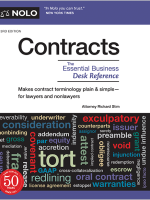Rent-to-own businesses benefit millions of Americans who struggle with poor credit or limited income streams. In general, the industry prides itself on helping folks make steady payments on items that they otherwise wouldn't be able to afford. Used judiciously, this system can substantially raise the actual and perceived living standards of its participants and foster a healthy culture of ownership.
Of course, the industry has a number of downsides as well. For starters, many rent-to-own businesses deal with sub-prime borrowers on a regular basis. The industry's best practices demand that rent-to-own business owners ask these borrowers to pay relatively high rates of interest on the products that they rent. It follows that this can substantially increase the typical rent-to-own product's cost of ownership and negatively impact the finances of habitual customers. Over time, this arrangement can have lasting effects on these customers' credit histories and debt-to-income ratios. Combined with other factors like working-hour cuts and job losses, it may push teetering rent-to-own customers into default.
If you've become unable to pay your rent-to-own creditor, you have several options at your disposal. First, it's important to note that you're not necessarily at risk for legal action. While withholding payment from a rent-to-own business without returning the pertinent items technically constitutes theft, most businesses adopt a hands-off approach to filing criminal charges against delinquent borrowers. Unless you move the items to an undisclosed location or fail to communicate the circumstances of your delinquency to your creditor, you won't face criminal charges for your failure to pay.
In fact, most rent-to-own delinquencies are resolved through repossession. As long as you keep the pertinent items in your home, your creditor is likely to repossess them at some point after the start of your delinquency period. The exact length of time that elapses between the expiration of your grace period and the initiation of the repossession process may depend upon the policies of your specific creditor and the circumstances of your delinquency.
If your delinquency occurs near the start of your rent-to-own period, your items are likely to be repossessed within three weeks of your last payment. If your delinquency occurs just before your final payoff, you might have much more room to negotiate with your creditor. In the past, delinquent rent-to-own customers with a history of making timely payments on their loans have generally worked out refinancing plans with their creditors. If you're able to do this, you may be able to keep your rented items.

